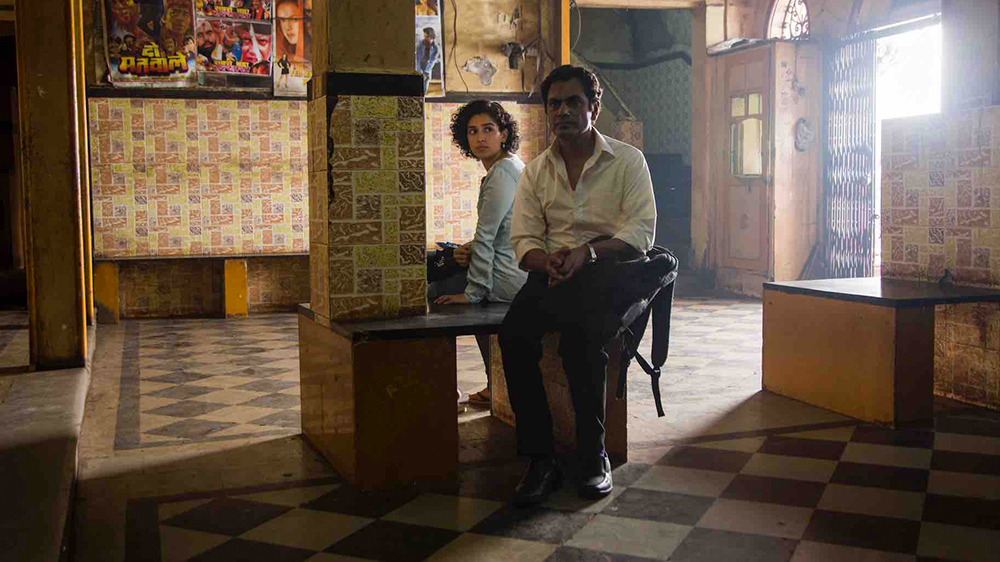Image description: Two Indian people (a young woman and a middle-aged man) sit in a darkened room with elaborately-decorated tiled walls and floors. They both sit on a bench in the middle of the room, which is connected to a pillar. The man faces to the left of the camera, looking dejected and pensive. The woman’s body is facing the opposite direction, but her face is turned to look at him. She has a reserved expression on her face.
By Cassie Ma
Set in India, Photograph (2019) is a love story between two unlikely people.
Rafi (Nawazuddin Siddiqui) is a street photographer who comes from a poor family. His parents passed away when he was young, which left him to be raised by his traditional grandmother, Dadi. Rafi’s goal in life is to repay his family’s debts, despite his grandmother’s efforts to find him a wife.
Miloni (Sanya Malhotra) is a college student studying Accounting. Her life seems perfect; she has a family who dote on her constantly, excellent grades, and she lives very comfortably.
But Miloni is miserable. Her childhood dream of becoming an actress was squashed by her parents, and she constantly finds herself following whatever they have decided for her – paths that concern the accrution of wealth, and becoming more well-connected. She longs for a simple life in the country, and to find happiness.
Rafi and Miloni should never have met, but a chance encounter brings them together when Miloni has her photograph taken by Rafi in front of the Gateway of India – a Mumbain arch-monument. The eponymous photograph is the catalyst for their romance.
Miloni is instantly smitten with his ability to capture her; she sees a girl in that photo that looks cheerful. Before Miloni can pay Rafi, she runs away. Rafi is upset and frustrated at the thought of losing income, but luck proves to be on his side when he finds Miloni on a billboard (due to her high grades), and he subsequently finds her at her college.
In the meantime, Miloni has lost this beautiful photograph. When Rafi finds her, she is overjoyed; she can have another taken.
And the second meeting also works well for Rafi, beyond garnering payment for his work. His grandma has been pressuring him to organise a meeting between him and his ‘girlfriend’, Noorie. With no female friends, Rafi is desperate to find a decoy girlfriend. He proposes this idea to Miloni, and, to his surprise, she agrees.
And so, the charade begins; over time, they fall in love.
The film itself, whilst interesting to watch, was too slowly-paced, and not as captivating as I thought it should be. The romance was very awkward, and while that was cute to begin with, this awkwardness lasted too long.
Granted, the characters themselves were slightly odd and shy in nature; however, I felt that they could have been more open with each other earlier, and still be authentic to their characteristics.
What I did like about the film was that it was unresolved, and was therefore realistic. In a world where following tradition and familial expectations is very important, it is no surprise that this was a huge barrier for Rafi and Miloni’s romance.
Even though I felt extremely unsatisfied because no outcome or conclusion was presented of the relationship, I believe this is a good reaction; it means the audience feels for the characters, and are invested in the outcome.
Three out of five Campa Colas.
Cassie is a tea addict who likes to think about going to the gym.
Image courtesy of Amazon Studios

